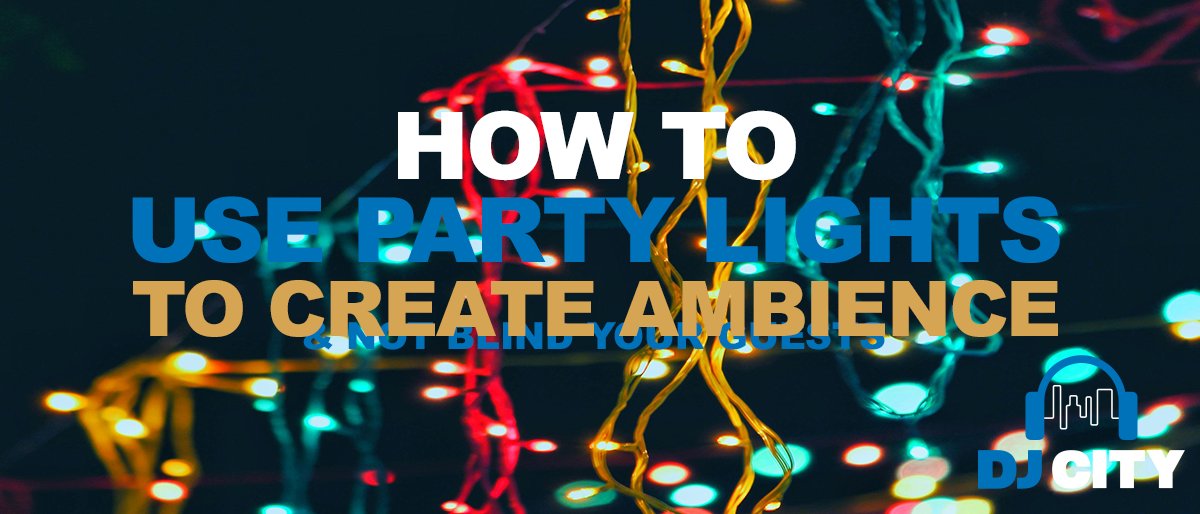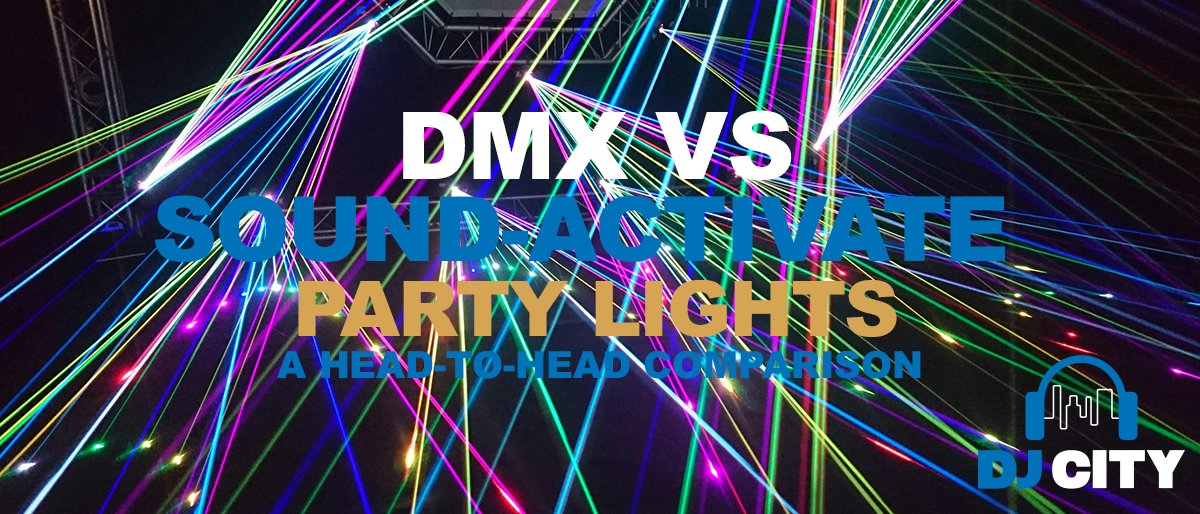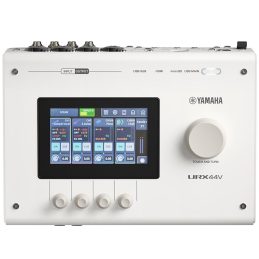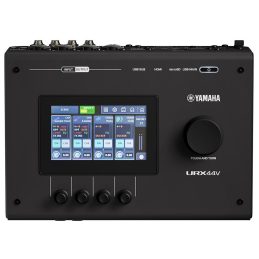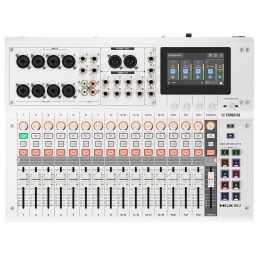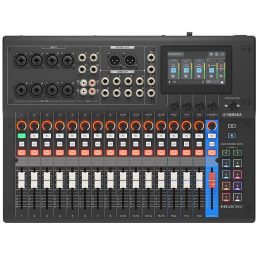
What is a Ghost Producer?
Whether you’ve been working in the electronic dance music and DJ industry for a while or not, you may have heard the term “ghost producer” or “ghost production”.
There are many misconceptions about what ghost producers are, what they do and, to be frank, whether they’re good or bad for artists and the industry in general. To help settle the dust on this particular issue, we’ll dive into what they are, what they do and whether or not you should consider using one.
Introduction to Ghosts… and Ghost Production
Of course, we’re not referring to supernatural ghosts here. We’re talking about creative ghosts. Ghost writing and even ghost painting has been a staple of the creative industries for as long as the arts have been around, and the same is true for music production and DJing within the music industry.
When it comes to ghost production, there can be a wide variety of different types of work and tasks that they engage in. For some artists, ghost producers merely provide a helping hand to finalise a track. While for others, they can be an integral and critical part of the music creating process from beginning to end.

Ghost Production 101
What is a Ghost Producer?
In short, an EDM ghost producer (standing for electronic dance music) is a professional that is hired to assist a musical artist, such as a DJ, in the production of a song or track but is not credited for their work.
They remain anonymous and all creative credit is left for the artists. In fact, by contract, most ghost producers are not allowed to even identify themselves. Depending on the DJ or artist in question, some creatives are more secretive about their use of ‘ghosts’ than others.
What is involved in Ghost Production?
Ghost producers can be involved in many different ways. Some may help write lyrics, create music or produce the track through mastering, arrangement or audio engineering. In some ways, they do many of the jobs a regular producer does but without the credit.
Again, like regular producers, ghost production services can be an invaluable member of the team whether or not they are involved in all aspects of bringing a track to life. They might act as an overall project manager or simply come in for a very specific job. Depending on the particulars of their relationship with the artist, the producer might work in more of a partnership type role or simply come in to take notes from the artist/client. Every ghost producer contract is different and their tasks and involvement will differ as well.
Understanding the Benefits of Ghost Production
Advantages for Artists and DJs
Working with ghost producers offers numerous benefits for artists and DJs. One of the primary advantages is the ability to access high-quality, professional music without the need for extensive production skills or time. Ghost producers specialise in creating top-notch tracks that meet music industry standards, allowing artists and DJs to focus on their performances and promotions.
Another significant benefit is the exclusivity of the ghost produced tracks. Each track is sold only once, ensuring that the artist or DJ who purchases it has a unique piece of music that sets them apart in the competitive electronic dance music scene. This exclusivity can be a major differentiator for artists and DJs looking to establish their brand and sound.
Additionally, this type of music producer provides artists and DJs with the opportunity to tap into the expertise and creativity of experienced professionals. They have a deep understanding of the EDM industry and can create tracks that are tailored to specific styles and genres. Ghost produced tracks can be particularly beneficial for artists and DJs who are looking to expand their musical repertoire or explore new sounds.
Finally, working with ghost producers can be a time-saving solution for artists and DJs who are short on time or lack the skills to produce their own music. By purchasing pre-made tracks, artists and DJs can quickly integrate high-quality music into their sets and productions, without the need for extensive production time.
Services Offered by Professional Ghost Producers
Custom Music Production
Ghost producers offer a range of services, including custom music production. This involves working with the artist or DJ to create a unique track that meets their specific needs and style. Custom music production can be a great option for artists and DJs who are looking for a track that is tailored to their brand and sound.
Ghost producers can also offer services such as mixing and mastering, which can help to enhance the quality of the track and ensure that it is ready for release. Additionally, some may offer services such as sound design and music theory, which can help to add depth and complexity to the track.
In addition to custom music production, ghost producers may also offer pre-made tracks that are available for purchase. These tracks are often created in a variety of styles and genres, and can be a great option for artists and DJs who are looking for a quick and easy solution.
Ghost Producers vs Co-Music Producer
The big question is: what then is the difference between a ghost producer and a co-producer?
Ultimately, it comes down to the details of the contract. Regular producers and co-producers always keep a share of the licensing and royalties from a commercial track or project, often working closely with a record label. They keep their rights to part of the track and are credited for their work.
Ghost producers do not always retain royalties. Some may keep a percentage of publishing or mechanical rights to a track they work on if their contract stipulates so, even without being credited creatively for their work.
There are ghost producers who work for a fixed fee instead and there are even some who have a clause in their contracts stating that the fee structure can be reviewed if the track is successful.
Once again, it all comes down to the contact so make sure you have an experienced and professional eye looking over any producer contracts–ghost or otherwise–you’re thinking of signing.

Who Uses Ghost Producers?
Ghost Production Services for Clients and Industry Professionals
Ghost producers work with a wide range of clients and industry professionals, including artists, DJs, record labels, and music producers. These clients may be looking for high-quality music for a variety of purposes, such as live performances, music releases, or advertising campaigns.
Some of the most common clients of an EDM ghost producer include:
- Artists and DJs who are looking to expand their musical repertoire or explore new sounds and release songs
- Record labels who are looking for great music to release on their label or expand their music library
- Music producers who are looking for collaboration or assistance with their productions
- Advertising agencies who are looking for ghost produced songs or music for commercial campaigns
Ghost production may also work with industry professionals such as music managers, booking agents, and promoters. These professionals may be looking for quality and unique music to promote their clients or events.
Overall, they work with a wide range of clients and industry professionals who are looking for high-quality music and expert ghost production services.
Should You Use an EDM Ghost Producer as a DJ?
It’s pretty safe to say that just about all DJs, especially the most famous ones, work with at least one producer. There are many reasons to do so. From helping provide professional guidance, channel creativity and even ensure promotion and distribution success, producers can be very useful.
When you’re starting out as an artist and building a music library, you might want to consider getting a leg up in establishing your brand and sound by using an EDM ghost producer rather than a co-producer. Ghost production can be highly valuable. Why? Because you can achieve many of the same things a regular producer would offer you but without losing the credit for your early work on the ghost tracks before you’re established and known in the music career.
When you’re grinding it out working as an emerging DJ, you might also struggle to find the time you need to work on your tracks in the studio. EDM ghost producers can be extremely helpful in this regard. They can ensure you’re continually developing and releasing new music without taking away from your live performances, sets, gigs and touring schedule.
Last but not least, your technical skills might need a little bit of assistance. Producing music requires many skills, as well as talent and passion. For example, there’s knowing your way around a Digital Audio Workstation (DAW) for one. In the highly competitive music and DJing industry, it’s important that your tracks sound singularly professional. Working with an EDM ghost producer could be an excellent way of having your DJ cake and eating it too!
Why or When Shouldn’t You Work with an EDM Ghost Producer in the Music Industry?
EDM ghost producers are not for everyone. While much of the bad rep of ghost producers in the music business is the result of either contracts that are not understood equally by both parties or the artist/DJ not having the creative control and input they’d like, there’s nothing wrong with using a ghost producer if you have an amicable working relationship.
At the end of the day, you won’t need to use a ghost producer if you’re happy to have the producer or sound engineers credited on your tracks. Nor would you opt to work with an EDM ghost services provider if you’d rather pay a percentage of royalties from your track as a way of saving yourself the upfront fixed cost of hiring an EDM ghost producer.
Every DJ is different, and ultimately you need to build a team around you that works for you and will help ensure your success as an artist. If ghost production services suit your needs, then that may be the way to go. If an EDM ghost is not right for you, then that is fine as well.
Produce Your Music with DJ City
It doesn’t matter whether you’re a DJ working with a ghost producer, co-producer or running solo, your music making journey starts with DJ City, where you can create top quality music.
As the biggest sound and DJ equipment superstore in Australia, we have everything you need to make your mark in the world. If you are a DJ, artist or EDM ghost yourself, find out more and explore our range today.


